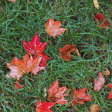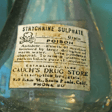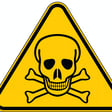
Concentrated Animal Feeding Operations (CAFOs) and Your Health
(My apologies... I labeled this as "CONFINED Animal..." and not "CONCENTRATED Animal...". I have actually heard them referred to with both terms, but Concentrated is the preferred term.)
Concentrated Animal Feeding Operations are proliferating across America, and have even begun to spread to the UK and other countries. No scientific body nor ecological body approves of their existence, because of the immense harm CAFOs cause to the environment, the health of the people who live around the CAFO, and even to the economy.
In addition to the information in this episode, I am including some links to places that will give you more detailed information about these things, and the horrific impact they have on the environment, public health, and the economy. Please take some time to check some of them.
I apologize for the quality of the recording, but I recorded it outside in our summer shelter gazebo, and there was some wind noise. Even with that, though, I hope you find this very informative and educational... and that it stirs you to do something positive about this rampant attack on your health, your family's health, and the health of the planet.
CAFOs pose a serious threat to human health
CAFOS use massive amounts of water
Rachel Carson Council statement on CAFOs
Delmarva CAFOs sickening local residents
The hidden cost of cheap chicken


















